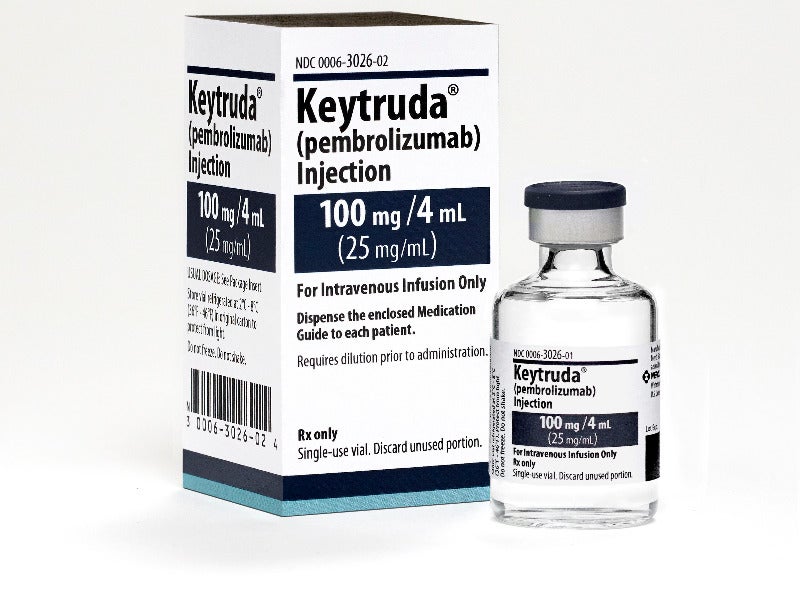
A regimen of neoadjuvant Keytruda and chemotherapy extended pathological complete response (pCR) rates by 13.6% compared to chemotherapy alone in patients with early triple-negative breast cancer (TNBC), according to findings from the Phase III Keynote-522 study presented at the ESMO Congress 2019.
The interim results from pivotal Neoadjuvant / Adjuvant Keynote-522 trial were presented for the first time at ESMO 2019 Congress during Presidential Symposium.

Discover B2B Marketing That Performs
Combine business intelligence and editorial excellence to reach engaged professionals across 36 leading media platforms.
The trial randomised patients with TNBC in a 2:1 ratio to receive a 200mg dose of Merck’s anti-PD-1 therapy Keytruda (pembrolizumab) every three weeks (n=784) or placebo (n=390).
Patients received four cycles of carboplatin plus paclitaxel followed by four cycles of doxorubicin or epirubicin plus cyclophosphamide.
Following surgery, adjuvant Keytruda was continued for nine cycles or until disease recurrence or unacceptable toxicity.
Event-free-survival (EFS) and pathological complete response (pCR) were dual primary endpoints for the study, which enrolled 1,174 patients.

US Tariffs are shifting - will you react or anticipate?
Don’t let policy changes catch you off guard. Stay proactive with real-time data and expert analysis.
By GlobalDataThe pCR rate was 64.8% with Keytruda plus chemotherapy compared with 51.2% for chemotherapy alone.
In an exploratory sub-group analysis of pCR based on PD-L1 expression, the pCR rate was 68.9% compared to 54.9% for Keytruda and placebo, respectively.
Merck Research Laboratories president Roger Perlmutter said: “This innovative trial is the first to employ combined neoadjuvant and adjuvant treatment with Keytruda in patients with early-stage TNBC.
“The results of the Keynote-522 study, reported today, are very encouraging and have the potential to change the treatment of patients diagnosed with TNBC.”
The US Food and Drug Administration granted breakthrough therapy designation for Keytruda plus chemotherapy for the neoadjuvant treatment of patients with high-risk, early-stage TNBC.
Merck said it plans to share early interim analysis data from Keynote-522 with regulatory authorities.
The company added that it continues to progress a clinical development programme for Keytruda in breast cancer, which features various internal studies and external collaborative trials, including Keynote-355 and Keynote-242.





